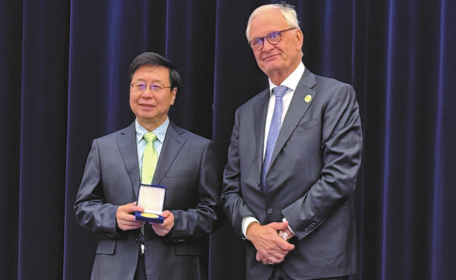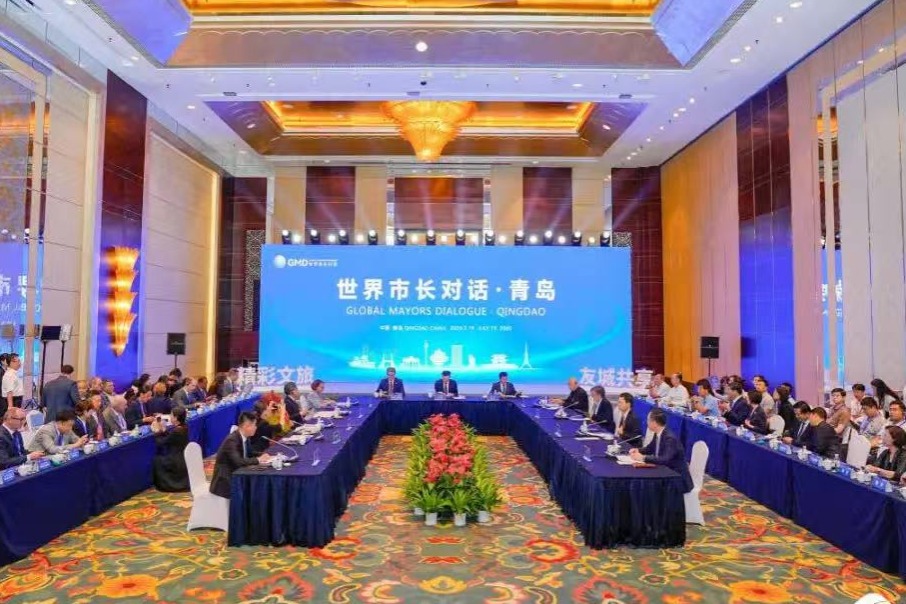Chinese scientist's water research receives acclaim

As the world grapples with an escalating water crisis, a Chinese scientist's innovative solution to water pollution is receiving international acclaim for its potential to benefit more people worldwide, particularly in developing nations.
Qu Jiuhui, a scientist at the Research Center for Eco-Environmental Sciences of the Chinese Academy of Sciences and an academician at the Chinese Academy of Engineering, has been awarded the 2024 Nobel Sustainability Award for "Outstanding Research and Development in the Field of Water".
"Today, we are facing a serious water crisis because this marvelous and pure substance has been polluted and overexploited by humans. Deeply rethinking what we have done wrong is urgently needed, as well as correcting the mistakes and making the polluted water clean again," Qu said at the awards ceremony at the University of California, Berkeley, on Wednesday.
The Nobel Sustainability Trust praised Qu's development of a "from source to tap" technical system that ensures safe drinking water across urban and rural areas. His innovations include breakthrough low-cost technologies for removing arsenic and fluoride from groundwater, with the potential to positively affect more than 200 million people globally.
For more than two decades, Qu has led China's Water Science and Technology Innovation Plans, making significant contributions to ecological and environmental restoration projects, including Yangtze River protection and the Baiyangdian wetland remediation.
In his laudation for Qu at the ceremony, Slawomir Hermanowicz, a professor at UC Berkeley's Department of Civil and Environmental Engineering, praised Qu's work as "a shining example of the transformative power of scientific innovation".
Hermanowicz emphasized the significance of Qu's active zone-purification technology, which has been "instrumental" in major watersource restoration projects throughout China.
"As an adviser to the United Nations Environmental Program, Qu has actively promoted international collaboration, sharing water-treatment technologies with developing nations such as Sri Lanka and Nepal," he added.
"The world is facing a serious water crisis now — water pollution, water shortage and hydrological hazards," Qu told China Daily.
Over the past two decades, his team has developed user-friendly, cost-effective, and low-maintenance water-treatment technologies specifically designed for rural areas. These technologies have been used in villages in Sri Lanka, Nepal and Bangladesh.
"International collaboration is very important. We can share knowledge and best practices with each other and push the deployment of the technologies to benefit more people," Qu noted.
As an international member of the US National Academy of Engineering, Qu highlighted existing partnerships with US institutions and exchanges of knowledge through student programs, summits and workshops between China and the United States.
The Nobel Sustainability Trust Foundation, established in 2007 by four Nobel family members, awards individuals who contribute to the United Nations' Sustainable Development Goals.

Today's Top News
- Typhoon Wipha pummels Guangdong province
- Japan's ruling coalition faces tight election test
- 'Pet' major launched as demand surges
- EU's sanctioning of Chinese financial institutions unjustifiable
- China coastal regions brace for Typhoon Wipha
- Premier stresses high-quality implementation of major national projects






























